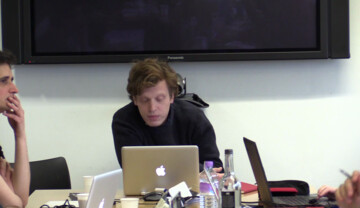Under the referential field of constituencies, the Van Abbe proposes the term ‘agency’.
What are the motivations and implications for foregrounding constituencies in the museum? As the preamble on the glossary website suggests, it is part of an attempted “shift away from a hierarchical, top-down and ‘broadcast’ based model of knowledge dissemination” where a museum’s constituents can play a formative role. It is part of the institution coming to terms with the inadequacies of its founding model, not only in terms of the type of knowledge it produces (through the historically or geographically limited scope of its collections and archives for example) but the modes of dissemination and exchange it uses (exhibitions, publications, symposia).
Opening up the museum to constituents and constituent power means a substantial, and we would argue welcome re-orientation of emphasis for the museum. It would seem to suggest a shift in focus from collections and exhibitions to a foregrounding of relationships with those who have a political and cultural stake in the museum. Significantly, it means not only understanding who our constituencies are but also forming positions and arguments with them. However, for this to be meaningful, the terms of the relationship are crucial to understanding how constituencies might work with or through museums – and visa versa. It is here we propose the term agency.
In its simplest terms agency can be understood as one’s ability to act. Yet when thinking considering how the museum might work with constituencies this ability to act has wider implications: What agency do constituencies hold within an institution with its set protocols, formats and languages? Who decides the conditions for this relationship, setting the potential and limitations for agency to be enacted? And what agency does the museum itself hold to operate in new ways with constituents, tied as it might be (or think it might be) by different obligations to funders, partners or governments? With these and other questions in mind, agency seems a potentially cogent term with which to explore what working with and through constituencies might mean – both for the museum and its constituents.


